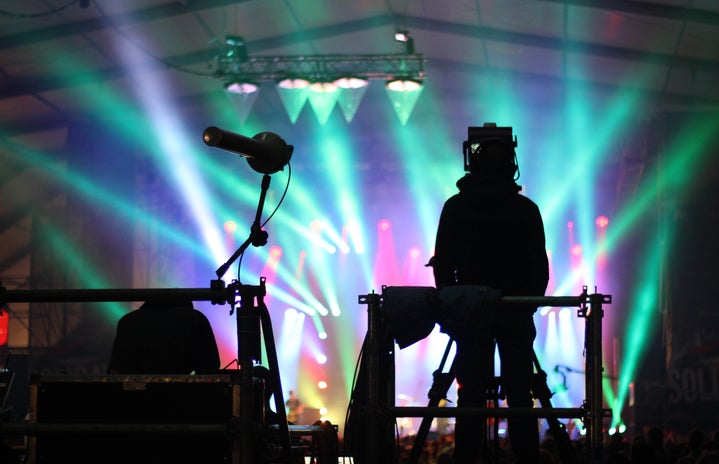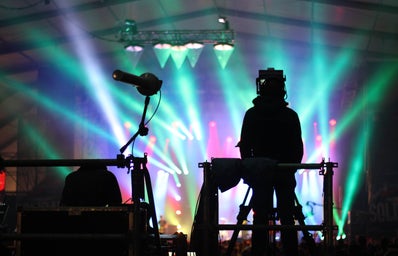Heavy metal was an integral part of my childhood. It’s what my dad and I listened to together while he drove me to school, with the volume so high that the car shook. The musicians who performed incredible riffs on their glossy Gibsons, their fingers crawling down the frets, were what encouraged me to take up the guitar when I was five. My parents fondly recall the ferociousness that would escape my little mouth when I sang to Slipknot. It breaks my heart that so many people do not see what make metal music beautiful so I’m going to dissect some of the stigmas against the genre, share my opinion and experiences, and hopefully give you, the reader, a new perspective.
Before I dive into this, I want to make it clear that I’ll be discussing screamo, metalcore, and metal music. Each differs in origin but the genres have blended so much in the last decade that I’ll just refer to them under the blanket term ‘metal’.
“Heavy metal is barbaric and noisy!”
The first thing that turns people off from metal music are the vocals. Many singers use a throaty screaming or growling technique and, coupled with the vigorous drumming, heavy guitar, and chunky rhythms, makes for very intense music. The point of this performance style is to show the cathartic nature of this genre. A scream, in general, is used to express rage, despair, grief, or even delight! When applied to music, it stamps in the intimacy and realness of the emotions the performers felt when interpreting their song. Also, screaming is a skill that requires a lot of practice to perform in a way that doesn’t destroy a singer’s vocal chords and is a style that they like. It’s still very harmful to a person’s voice, so this technique is used very deliberately, not ‘just because’.
“Metal is satanic/antireligious!”
This perspective is born from the tiny, tiny subgenre called ‘black metal’, which is characterized by satanic themes and violent imagery (which more often than not, is totally for shock value). Mainstream metal culture condemns the harmful ideologies and actions promoted by black metal. In any case, this radical subgenre simply doesn’t hold a candle to the size and success of the religious metal movement, which is rapidly growing more diverse. For example, Gisele Marie is a fantastic Muslim guitarist from Brazil and Flyleaf is a Christian band with an amazing female vocalist. Religion is actually a prevalent subject that many musicians discuss in their music.
“You can’t even tell what they’re saying!”
Metal isn’t meant to be taken at face value. Some bands use harsh vocals that are intentionally hard to make out, forcing an audience to pick it apart and find the poetry. It’s worth mentioning that a band always writes their own music, it’s almost unheard of for a band to perform with someone else’s music. Also, not every band uses screaming/growling. Some songs are end to end screaming, varying the speed and style of vocals while the instrumentals apply the melody. Many bands have harsh verses and melodic choruses. And some simply sing the over heavy guitar and drum performances. It depends on the band and the tone of their song.
“The songs have no substance; they’re about drugs, violence, and profanity!”
My favorite song is “Second and Sebring” by Of Mice & Men (listen here). The song is about the death of the lead singer’s mother and named after the street of their family home, which is where she died. With harsh vocals, he laments how much he misses her and appreciates the care and love she gave him. In an even deeper, more anguished voice, he expresses his goal to make her proud. There are a handful of melodic sections intermixed with the screaming, in which he uses a normal singing voice to express a more vulnerable side of his grief. It’s such a powerful song that has strikes a new chord in me every time I hear it. Of Mice & Men is also one of many other bands (Such as Beartooth, Escape the Fate, and Black Veil Brides) that do not swear in their music.
“Metal is patriarchal and unwelcoming to women.”
Metal culture is undoubtedly male centric with very few women musicians in the scene, and not unlike other genres, women are often the subject of sexualization or violence. However, that does not mean that there are not many respectable men or amazing women. The Pretty Reckless, Flyleaf, Evanescence, Pvris, Otep, Jinjer, Halestorm, and Arch Enemy are some great bands with incredibly skilled women musicians.
“Metal is made by and for white people.”
Metal culture is largely comprised of white performers and fans, but to say that it’s “white guy music” discredits the many prominent musicians of color and non-white admirers who love this form of expression. Living Colour and Unlocking the Truth are two bands that are completely made up of black musicians; Pierce the Veil is a band comprised of all Mexican musicians; Ill Niño and Orange Sky are Latin-metal fusion bands made up of Latino members. Body Count, Letlive, Suicide Silence, System of a Down, and Issues are just a couple bands with a mix of musicians who come from different backgrounds. Metal has grown in popularity all over the world, so there are many non-English bands also, such as Flagitious Idiosyncrasy in the Dilapidation, a Japanese all-girl band, or Acrassicauda from Iraq.
It’s ardent and a little aggressive, but metal music has always been something that I loved and found comfort in. It’s a platform built to express the deep and sometimes unsettling passion that afflicts everyone, interpreted by so many talented musicians in the meaningful, intimate stories they share.

